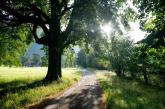 “… Fewer idylls than this picture-book backdrop promise the program of festivals, which in this year Dmitri Schostakovich’s life and work are meticulously examined – with the British musicologist and composer Gerard McBurney as well as experts in the repertoire at this side – Andsnes has programmed to get closer to him.
“… Fewer idylls than this picture-book backdrop promise the program of festivals, which in this year Dmitri Schostakovich’s life and work are meticulously examined – with the British musicologist and composer Gerard McBurney as well as experts in the repertoire at this side – Andsnes has programmed to get closer to him.
“Shostakovich resisted the Stalinist regime, wrestling with moral questions, sometimes unequivocally, sometimes by irony, hidden in notes. For the festival, the contemporary historical context is just as important as the Russian art music history, which in the nineteenth century names the composer Mikhail Glinka as her “father”, although it goes back further. The stories behind the music belong in Rosendal.
“An important role for Shostakovich’s programmatic excursions, from Jewish music to contemporary Norwegian composers, is played by the Russian composer Alexander Vustin, born in 1943, who is personally on site together with his music. In “Zaitsev’s letter”, Vustin puts the letter of a prisoner in music, underpins it with prison noises played by the tape. The journey through time continues through Alfred Schnittke and his piano quintet, which becomes an intense experience under the bows of Quatuor Danel, with the addition of Andsnes at the piano and which on these days provides interpretations at a reliably high level. Paradoxically, the strings seem to act against and with each other at the same time.
“Like his life story, Shostakovich’s music is full of masked games, ambiguities and double entendres, which the composer did not only include in his late work – for example, by initiating quotations from Gioachino Rossini’s “Wilhelm Tell” and Richard Wagner’s “Tristan” in his fifteenth symphony. In his music for the silent film “New Babylon” from 1929, which is shown as a festival cinema after an elaborate reconstruction, Shostakovich takes on Jacques Offenbach’s Cancan from “Orpheus in the Underworld” in addition to the Marseillaise. Like the student Shostakovich, who did not shy away from contributing not only pleasing accompanying sounds in the cinema, but also pieces for his examinations, Sasha Grynyuk performs for one and a half hours of hard work on the grand piano. The morning after, he plays again as if nothing had happened, this time Sergei Rachmaninov’s Préludes op. 32, for all its sumptuous pianistic furnishings, almost simple, warm and in clean lines.
“That the festival is successful as an introduction to Shostakovich’s personal style, with all its tireless rehearsals, chasm of sounds from the highest and deepest positions and the supposedly banal-looking melodies made sharp by small tricks, is thanks to the excellent, well-known performers who came to Rosendal, such as the pianist Marc-André Hamelin. Anthony McGill, solo clarinettist of the New York Philharmonic, explores the entire spectrum of colour and articulation on his instrument. In a thoughtful evening programme, violist Tabea Zimmermann naturally lets Igor Stravinsky’s elegy flow into the following Shostakovich Sonata … On the side of the young up-and-coming artists, the carefree, highly passionate violinist Veriko Tchumburidze makes a special impression. At the end of the first movement of Shostakovich’s second piano trio, deafening trumpet fanfares come from her violin.
“In his novel “The Noise of Time”, Julian Barnes made the narrator’s Shostakovich think that his story and biography would fade with time. In Rosendal, work is being done against this thesis. The picture that is put together here, mosaic stones for mosaic stones, is not complete in the intricate web of motifs, political as well as personal, in the end, of course, but extraordinary in its claim and depth of thought. Those who go through these four long days full of highly concentrated chamber music, including detours to film and visual arts, will immediately be curious about the next festival. What Andsnes then develops from a subject that seems much more well-known and grassed up than Shostakovich’s life remains to be seen. In 2020, Ludwig van Beethoven will also be the place to be in the pastoral Rosendal.”